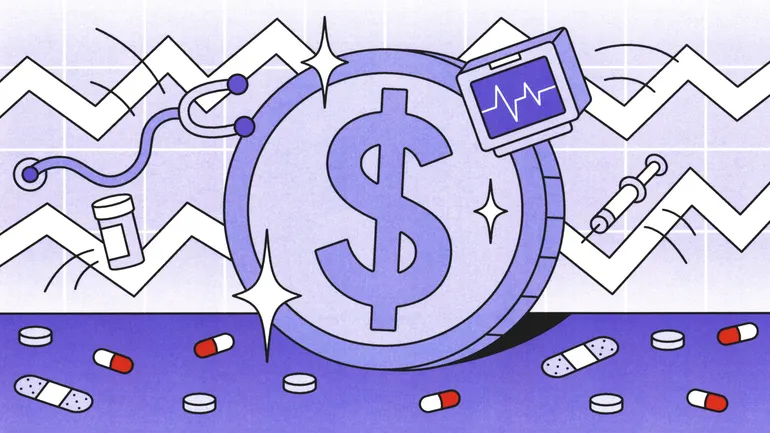Dive Brief:
Community Health Systems reported first-quarter earnings that beat analysts’ expectations on Wednesday, including year-over-year same store operating revenue growth of 3.1% on high demand for services and a heavier flu season.
The health system also made significant progress toward its long-term goal of deleveraging its balance sheet. CHS completed three divestitures during the quarter and announced a debt refinancing maneuver in tandem with the earnings release to bring down CHS’ debt-to-operating income ratio.
Still, familiar headwinds continued to dog the system, including elevated medical specialist fees and high rates of claim denials from payers. Uncertainties from Washington also add complexity to strategic planning, executives said, noting the Trump administration has been slow to approve state Medicaid supplemental payment programs.
Dive Insight:
The health system beat the street’s expectations for operating revenue in the first quarter, recording $3.2 billion, a 0.6% increase over last year.
The system saw a sizable boost in volumes from a stronger-than-expected flu season, with same store admissions rising 4% year over year. Executives also noted an uptick in volumes from cardiac procedures and robotic surgeries, which they said pointed to the return on investment from new advanced platforms.
Operating expenses came in at $2.8 billion. CEO Tim Hingtgen told investors the company had “held the line” on supply costs and decreased contract labor costs by $8 million year over year. However, medical specialist fees increased 9% year over year to total $163 million.
CFO Kevin Hammons said CHS had planned for medical specialist fees to rise, with the majority of the increase in anesthesiology.
“It is a pain point, it continues to be a pain point,” Hammons said.
Heightened medical specialist fees were baked into CHS’ 2025 guidance, according to the CFO. CHS predicted the fees would rise 8% to 12% year over year when issuing its guidance in February, and said the system was on track with that target. Still, CHS is investing in insourcing whenever possible in hopes of bringing costs down.
CHS also completed three divestitures during the quarter, including ShorePoint Health System in Florida, Lake Norman Regional Medical Center in North Carolina and its 50% stake in Mississippi-based Merit Health Biloxi. The completed deals generated $544 million in cash proceeds for CHS, and the system estimates it will bring in $460 million more when it completes its sale of Texas-based Cedar Park Regional Medical Center later this year.
Collectively, the deals will help CHS reach a $1 billion divestiture target it set last year, Hingtgen said.
Analysts were pleased overall with the health system’s performance, despite CHS posting a $13 million net loss.
“We give [CHS] credit for continuing to execute and deliver,” Jefferies’ analyst Brian Tanquilut wrote in a Thursday note. Volume trends signalled fundamental improvements and management was dexterous when adapting to expense pressures, including rising physician specialist costs.
“More important, [CHS] is executing on a hospital divestiture program that’s enabling [management] to pay down debt, just as the company is working through refinancing/extending upcoming debt maturities,” Tanquilut said.
CHS is the first for-profit health system to post first quarter earnings amid an anxious healthcare landscape. Questions are swirling about how healthcare providers could handle possible cuts to Medicaid, a brewing trade war and reduced federal funding that could torch research budgets.
Executives sought to assuage worries during Thursday’s call with investors.
“I want to acknowledge the fact that healthcare providers are currently facing a number of uncertainties,” Hingtgen said. “Navigating any potential changes that may come out of Washington in the weeks and months ahead makes planning more challenging, but our team is closely following these developments and advocating for policies that maintain and strengthen our health system.”
CHS expects to be mostly insulated from the immediate effects of tariffs, including the Trump administration’s import taxes on China, which currently sit at 145%. Hammons said less than 5% of CHS’ purchases come from China.
The majority of CHS’ supplies are purchased through a group purchasing organization, HealthTrust Purchasing Group, which offers CHS three-year fixed pricing contracts, Hammons said. The GPO sources about half its supplies through domestic suppliers.
“So we have some price protection there,” the CFO said.
Executives said they were uncertain when they would receive funding from Medicaid state supplemental payment programs. Since President Trump took office, it’s been an open question whether and when the CMS would approve payments that help health systems cover the shortfall for treating Medicaid patients.
Approvals for New Mexico and Tennessee programs — which CHS was waiting on at the close of 2024 — still have yet to be approved. However, executives were heartened by approvals of similar programs in other states, including New Hampshire and Arizona.
“It does appear that things are moving and that there’s not a complete moratorium on these plans,” said Hingtgen. “But we’re just still in a wait and see, and as we sit here today, we know of no reason that they will not be approved going forward.”
Despite CHS’ relatively strong performance and assurances issued by its leadership, Jefferies’ Tanquilut said the uncertainties cast over the market put CHS’ stock in a short-term difficult position.
“We recognize that the progress CHS is making in driving operational improvements and its balance sheet are overshadowed by ongoing risks associated with broader healthcare policy,” the analyst said. “Our view is that until we see a final budget reconciliation bill this summer (that presumably will mostly be funded by Medicaid cuts, which could have a meaningful impact on hospitals), near-term stock upside/recovery will likely be limited.”


